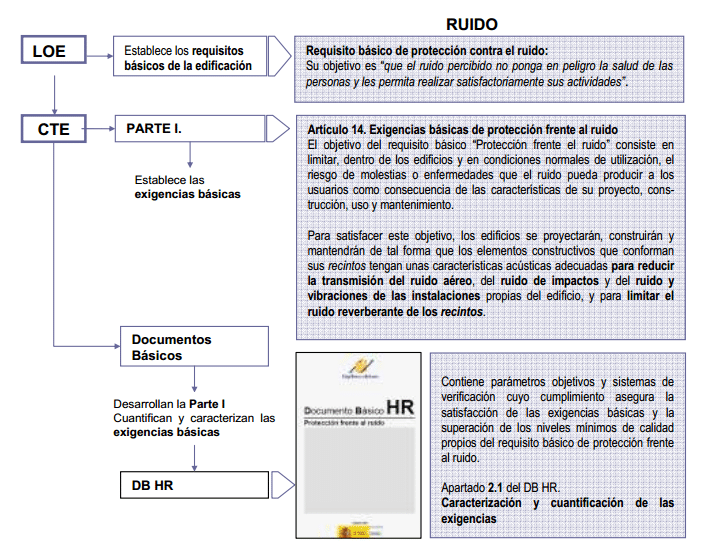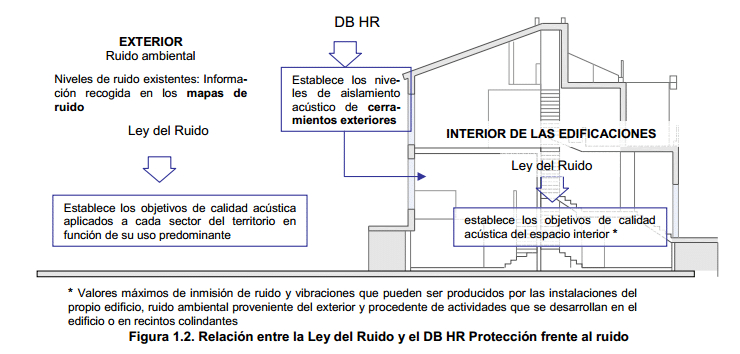-
Phone Number
-
Email Address
The Application Guide of the Basic Document of Protection against noise was born within the scope of Eduardo Institute of Construction Sciences Torroja under the collaboration agreement carried out between said Institute and the Ministry of Promotion within the strategy of this Ministry to generate a series of supporting documents that facilitate the application of the Basic Documents of the CTE.
Its purpose is to facilitate the practical application of the Basic Document DB HR Protection against noise from Technical Building Code , CTE. Contains DB HR interpretation criteria, comments and application examples made with the intended to serve as support for technicians who participate in the building process, whether in the drafting of construction projects construction, as in the execution and control of works, although not are familiar with proper acoustic concepts.
We must remember the data of the types of noises with which following scheme:

We can understand a little more in a general way from the guide of works and examples of reforms before a catalog with extensive useful information.
Content menu:
Within the habitability requirements, there is framed the basic requirement of “Protection against to noise” , which consists of limiting, within the buildings and under normal conditions of use, the risk of inconveniences or diseases that the noise can cause to the users as a consequence of the characteristics of their project, construction, use and maintenance.

To give an adequate response to the basic requirement of protection against noise, in the elaboration of the DB HR have pursued , among others, the following objectives:
Within the national regulatory framework, in relation to the protection against noise in buildings and outside the LOE and the CTE, must necessarily cite the Law 37/2003 on Noise . Bliss Law is the transposition of the European Directive on Assessment and management of environmental noise and has as a basic objective the prevention, surveillance and reduction of environmental noise pollution produced by acoustic emitters of any kind.
The Noise Law has two complementary regulations what they are:
The writing of DB HR has been coordinated with the writing of Law 37/2003, of November 17, on Noise and with its regulatory developments, regarding the protection of users regarding noise from outside and the facilities. To obtain a global vision, provides the schema:

…………………………………………
All documents can be accessed from HERE.
At this point we must remember the article… « Acoustics manuals and tools. The DB noise calculation tool HR» Where we can identify more than 30 manuals and tools to complement our work and the article of exterior carpentry in PVC from HERE given its importance in the building envelope.
Note: The images in this post are extracted from the DB-HR User Guide from www.codigotecnico.org